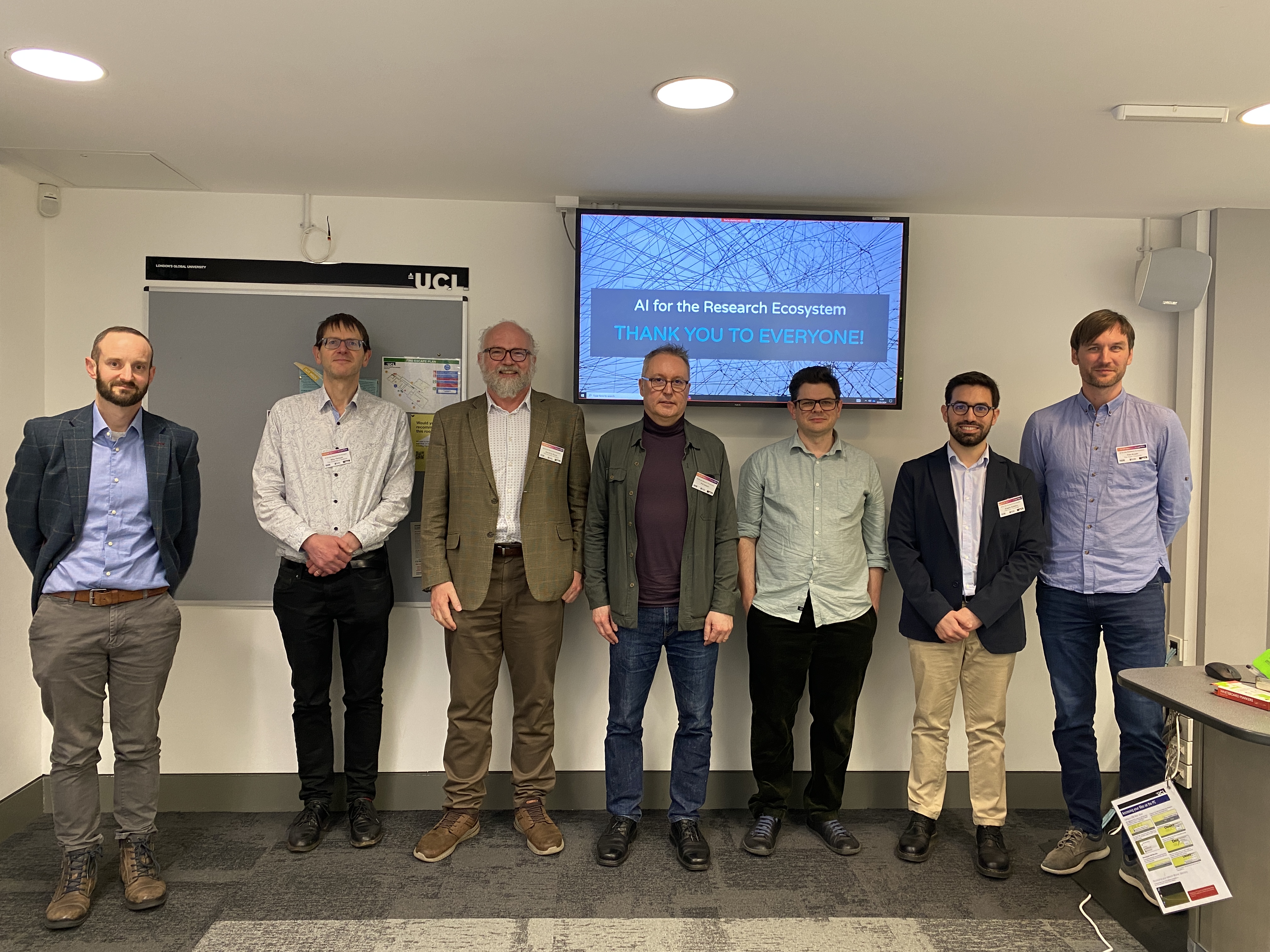On March 22, 2024, the AI for the Research Ecosystem workshop (#AI4RE) took place in London, kindly hosted by UCL in the wonderful surroundings of Chandler House. The workshop was part of the Turing Institue’s AI UK Fringe series of events which took place around the U.K. The workshop focused on the intersection of the […]
Tag: artificial intelligence

2100 AI: Reflections on the mechanisation of scientific discovery
“2100 AI: Reflections on the mechanisation of scientific discovery” is a paper submitted to the RE-CODING BLACK MIRROR Workshop co-located with the International Semantic Web Conference (ISWC) 2017, 21-25 October 2017, Vienna, Austria. Authors Andrea Mannocci, Angelo Salatino, Francesco Osborne and Enrico Motta Abstract The pace of nowadays research is hectic. Datasets and papers are […]



